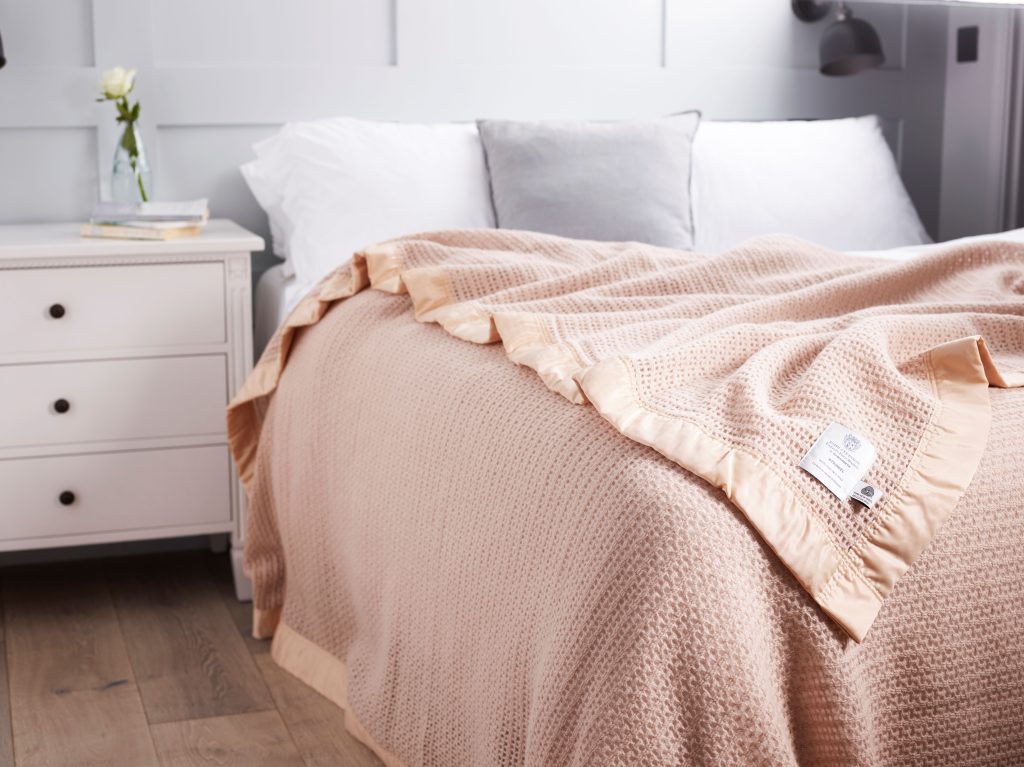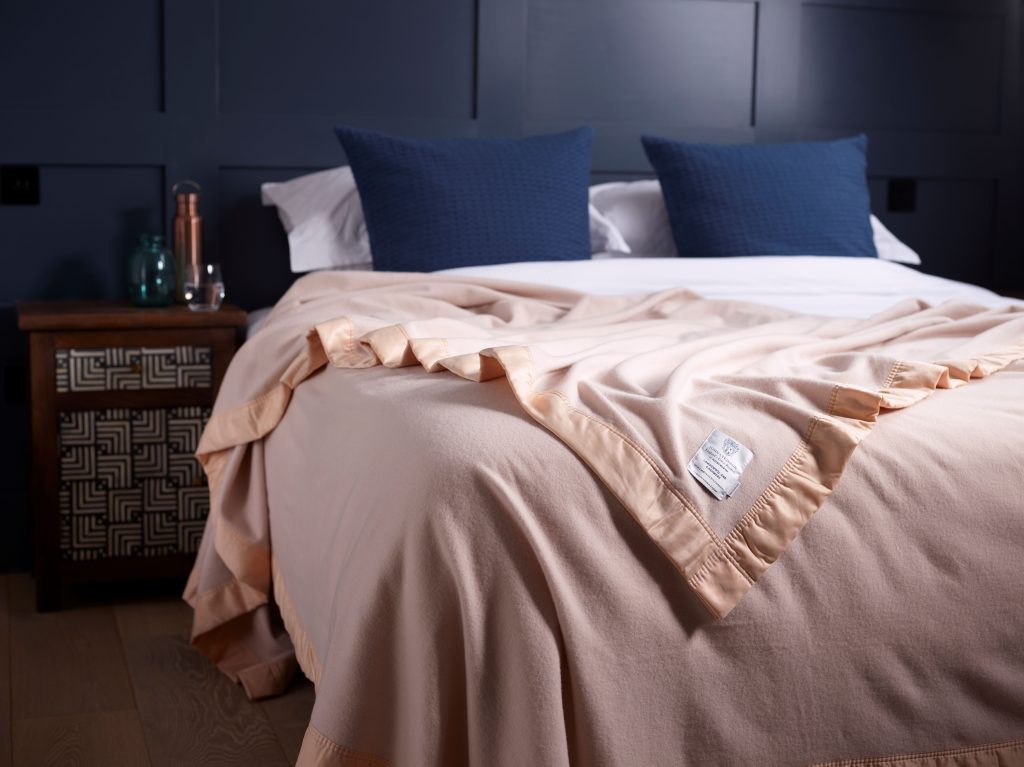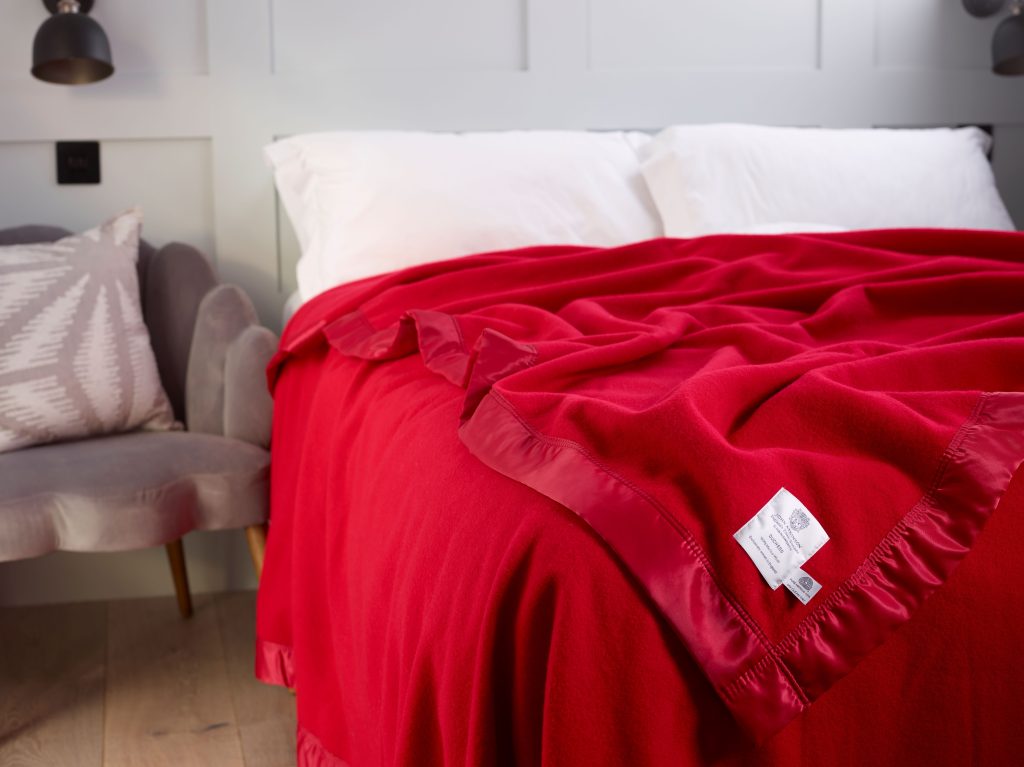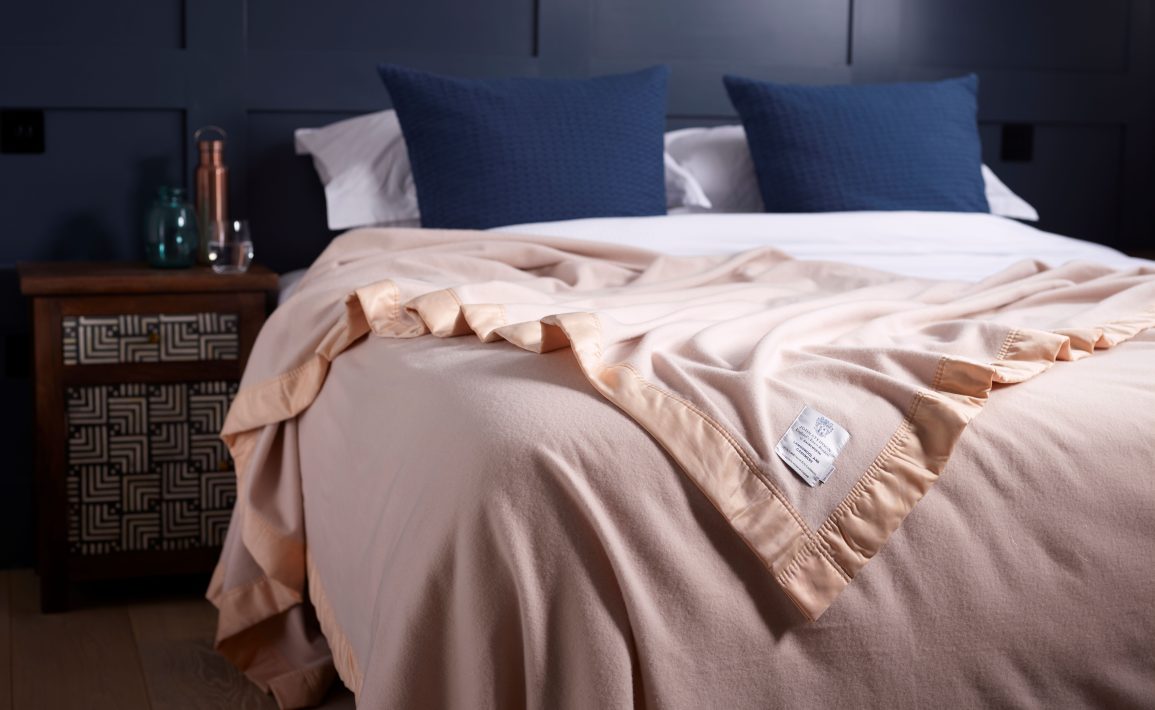
Have you ever woken up feeling exhausted even after a full eight hours of sleep? If so, you’re not alone. Millions of us suffer from poor sleep quality – as many as 1 in 5 people in the UK – which can have a profound impact on our daily lives.
Whether you struggle to fall asleep, stay asleep, or just want to boost your overall sleep quality, you’ve come to the right place. In this blog series, we dive into the complexities of sleep – exploring the causes of poor sleep, its health impacts, and the intricate relationship between sleep, ageing, and specifically for women – the menopause.
We’ll also unravel the science of sleep, with special attention to how our bedding choices, specifically the properties of wool, can greatly influence our slumber. Weaving together the science of sleep and the benefits of wool, these blogs offer insights and practical tips to make each night’s rest a rejuvenating and refreshing experience.
It’s time to prioritise your sleep.
Ready? Let’s dive in – here’s what’s covered:
1. The Science Behind a Good Night’s Sleep
2. What Causes Poor Sleep Quality?
3. The Health Impacts of Poor Sleep
4. Sleep & Age
5. Benefits of Wool for Sleep Quality

The Science Behind a Good Night’s Sleep
Achieving good sleep isn’t just about the quantity of sleep but also the quality.
When it comes to health and well-being, sleep plays a pivotal role. According to the Sleep Foundation, adults typically require 7-9 hours of sleep per night, yet an estimated 75% of adults in the UK don’t achieve this.
The question is: what constitutes a good night’s sleep, and what is the science behind it? Let’s break it down.
Stages of Sleep
Sleep cycles are divided into four stages: the first three are part of Non-Rapid Eye Movement (NREM) sleep, and the last one is Rapid Eye Movement (REM) sleep. Each stage has unique physiological characteristics. This cycle typically repeats every 90 minutes.
During NREM sleep, our body repairs tissues, builds bone and muscle, and strengthens the immune system. REM sleep, on the other hand, is when we dream and our brain processes and stores memories. Good sleep involves cycling through these stages multiple times each night. (The Sleep Foundation)
NREM sleep, constituting about 75-80% of total sleep time, is further divided into three stages – N1, N2, and N3. N1 is the transition phase from wakefulness to sleep. N2 is the stage of light sleep when body temperature drops and heart rate slows. N3, also known as deep sleep or slow-wave sleep, is the restorative phase when the body repairs muscles and tissues, stimulates growth and development, boosts immune function, and builds up energy for the day ahead.
REM sleep, on the other hand, is when dreaming occurs. It’s also vital for learning and memory as the brain consolidates and processes information from the day before.
The Importance of Circadian Rhythm
Our internal body clock, or circadian rhythm, influences sleep patterns. Regulated by the brain’s hypothalamus, it responds to light and dark signals, promoting wakefulness in the day and sleepiness at night. Disruption of the circadian rhythm, due to factors like jet lag or shift work, can negatively affect sleep quality and overall health.
During deep sleep, the body releases hormones that promote cell repair and control the body’s use of energy. Consistently missing out on this sleep stage can impact these processes and contribute to health issues.
Sleep Hygiene for Quality Sleep
Practising good sleep hygiene is crucial for high-quality sleep and daytime alertness. The National Sleep Foundation suggests maintaining a regular sleep schedule, creating a restful environment, limiting daytime naps, and avoiding stimulants like caffeine and alcohol close to bedtime. Moreover, they recommend physical activity to promote better sleep.
To boost your sleep hygiene, consider the role of bedding. According to a study published in Nature and Science of Sleep, wool bedding can improve sleep quality. It’s hypoallergenic, breathable, and its moisture-wicking properties help regulate body temperature, leading to fewer sleep disruptions.
Understanding the science behind sleep can be the first step in prioritising and improving your slumber. After all, it’s not just about the quantity but also the quality of sleep that matters for a healthier, more energised quality of life.

What Causes Poor Sleep Quality?
Stress
One of the leading causes is stress. When we’re under stress, our bodies produce adrenaline, which keeps us alert and ready for action – the opposite of what we need for a good night’s sleep. Another key cause of poor sleep quality is exposure to screens before bedtime. The blue light emitted by phones, tablets, and computers can interfere with the production of melatonin, the hormone that regulates our sleep-wake cycle.
“People experiencing chronic stress may experience a decrease in the amount of time spent in deep sleep, and disruptions during REM sleep.” (Sleep Foundation)
Sleeping conditions
Uncomfortable sleeping conditions, such as an old mattress or the wrong type of bedding, can also contribute to poor sleep quality. Ever had one of those hot, restless nights? Your synthetic bedding could be the undercover culprit, trapping heat and causing discomfort. This is where wool bedding, such as our luxurious woollen blankets, can make a big difference (but more on that later).
Food and drink
The food and drink we consume can also impact our sleep. While a glass of wine may help you fall asleep faster, alcohol can interfere with the stages of sleep, particularly REM sleep, leading to poorer quality rest overall. Caffeine and spicy foods too close to bedtime can also hinder the quality of your sleep.
Understanding these factors can help you take steps to improve your sleep quality, ensuring you wake up feeling refreshed and ready for the day ahead.

The Health Impacts of Poor Sleep
When we think of maintaining a healthy lifestyle, we often focus on diet and exercise. However, quality sleep is just as critical for our wellbeing. Prolonged periods of poor sleep can lead to a variety of health concerns.
Sleep and Mental Health
Poor sleep can affect mental health, according to mental health charity, Mind. Chronic lack of quality sleep has been linked to an increased risk of conditions such as anxiety and depression. It can also affect our cognitive functions, including memory and concentration.
Increased Obesity Risk
Physically, poor sleep can increase the risk of obesity. According to the Sleep Foundation, poor sleep disrupts the regulation of hormones that control appetite. There is also a strong link between poor sleep and cardiovascular diseases. Lack of quality sleep can lead to higher blood pressure, which in turn increases the risk of heart disease and stroke.
Weakens Immune Response
Poor sleep also impacts our immune system, according to Sleepstation, an NHS-endorsed sleep improvement programme. Those who sleep less than six hours a night may have a decreased immune response, making them more susceptible to common illnesses.

Sleep & Age
How does our sleep landscape shift as we age? It’s no secret that as we age, our sleep patterns change. Yet, it’s not just age that can impact sleep; hormonal changes can too. During perimenopause and menopause, fluctuating hormone levels can lead to hot flashes and night sweats, according to the Sleep Charity UK. These sudden changes in body temperature can disrupt sleep, leading to insomnia and poor sleep quality.
Let’s look into the unique sleep challenges that women encounter during perimenopause and menopause.
Sleep’s Age-Old Tale
As we transition through life stages, our sleep patterns naturally adapt. Newborns, for instance, sleep sporadically throughout the day and night, while teenagers are notorious for their late-nighters on their gadgets followed by midday slumbers. As adults, our work schedules often dictate our sleep routine, ideally aligning with the recommended 7-9 hours of nightly rest.
However, when we step into our ‘twilight years’, things start to change…
While it’s a common misconception that older adults need less sleep, the truth is they require just as much as younger adults, says the National Institute on Ageing. What does change, however, is the sleep architecture. Older adults may find it harder to fall asleep and stay asleep. They may also wake up more frequently during the night or wake up earlier in the morning. Additionally, they may spend less time in the deep sleep stage, leading to a lighter, more fragmented sleep.
In the Spotlight: Women and Sleep
If navigating the constant flux of hormonal cycles weren’t enough, women approaching mid-life are introduced to an entirely new set of challenges with the onset of perimenopause and menopause.
Perimenopause, the prelude to menopause, can begin as early as the mid-30s or 40s. During this time, women may start experiencing sleep disturbances, primarily due to fluctuating levels of oestrogen and progesterone, hormones that also play significant roles in sleep regulation.
Menopause usually hits between the ages of 45 and 55, and the impact on sleep can be stark, according to the Menopause Charity. Hot flashes, a hallmark of menopause, can jolt women awake, leaving them in a sweaty tangle of sheets. The decline in oestrogen can also lead to anxiety and mood swings, further exacerbating sleep problems. Add to this the increased risk of sleep apnea and insomnia, and you’ve got a perfect storm for poor sleep quality.
One way to combat these sleep disturbances is by using temperature-regulating bedding. Our wool blankets are naturally breathable, helping to maintain a steady body temperature throughout the night.
Sweet Dreams are Made of This…
So, what can we do to navigate these changes?
Maintaining good sleep hygiene is essential, regardless of age or life stage. Stick to a regular sleep schedule, create a serene sleep environment, and stay active during the day. Cut down on caffeine and spicy foods, especially close to bedtime, and swap out your synthetic bedding for breathable wool ones.
For women battling menopause sleep issues, consider seeking advice from your GP or healthcare professional. Treatments may include hormone replacement therapy (HRT), cognitive-behavioural therapy for insomnia (CBT-I), or other medical interventions.

The Benefits of Wool for Sleep Quality
From what we’ve discussed, it’s clear that wool has multiple benefits when it comes to sleep quality. But what exactly is it about wool that makes it so beneficial?
Imagine curling up in a cosy bed that keeps you just right, no matter the season. That’s the magic of wool – it’s a natural wonder fibre that has an amazing talent for adapting to your body temperature. So, whether it’s a frosty winter’s night or a sizzling summer evening, your wool bedding has got you covered, literally!
Now, we all know how night sweats or hot flashes can spoil a good night’s sleep. Here’s where wool leaps to the rescue. Its natural moisture-wicking properties can absorb sweat, keeping you dry and comfy all night long. No more tossing and turning, just undisturbed, peaceful slumber.
The wonder of wool doesn’t stop at temperature control. It’s also all about that cloud-like softness. With a natural springiness, wool offers a wonderfully soft and flexible sleeping surface that just screams comfort. And let’s not forget those of us with allergies. Lastly, wool is hypoallergenic. It resists dust mites, mould, and mildew, all of which can trigger allergies and disrupt sleep. So, it’s an excellent choice for keeping those pesky allergies at bay.
Quality bedding can contribute to a good night’s sleep by creating a comfortable environment that encourages these cycles. For instance, wool is hypoallergenic, resistant to dust mites, and excellent at temperature regulation, making it an ideal choice for bedding.
Time to reconsider your bedding options
At John Atkinson, our luxurious woollen blankets are more than just bedding. They’re an investment in your sleep health, offering enhanced comfort and a healthier sleep environment.
Investing in high-quality wool bedding is a simple way to improve your sleep quality. Not only will it provide supreme comfort, but it can also contribute to a healthier sleep environment, leading to better, more restful sleep.
So why wait? Give your sleep quality a massive boost and ditch the duvet!
Switch to high-quality wool blankets for sweet dreams and more restful nights.


